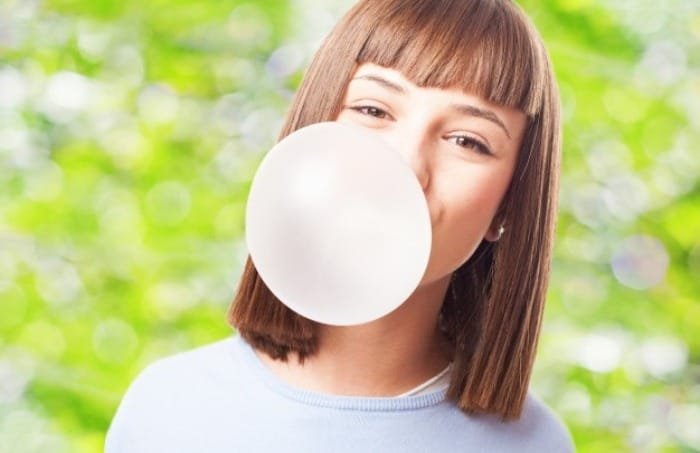Foods Dentists Don’t Eat
When it comes to oral health, there are certain foods and drinks you should limit. While you might consume some of these daily, they can cause staining, decay, or damage to your teeth. In this section of health and hygiene…SelMagzAccording to dentists, here is a list of foods and drinks you should avoid or consume in moderation.
Harmful Foods and Drinks for Teeth
1-Chips:
Chips are high in sodium and fat, which are bad for the body and not beneficial for teeth either, as they are chewy and can get stuck in your teeth. Anything that lingers in your mouth can produce more acid. So, avoid oily chips and try using vegetable chips instead.
2- Citrus Fruits:
Citrus fruits are healthy snacks rich in vitamin C and many bioflavonoids. However, citric acid can erode tooth enamel and increase sensitivity. Avoid brushing your teeth for at least 30 minutes after consuming citrus to allow saliva to help restore lost minerals.Chewing GumWithout sugar, it helps increase saliva, which can neutralize acids and aid in tooth restoration.
3-Coffee:
Coffee is a good source of antioxidants but contains pigments that can stain and discolor teeth. Not everyone is prone to discoloration, likely due to differences in saliva proteins, which can stick to teeth and be difficult to remove with brushing. You might need a dentist visit to clean it. These pigments are also found in tea.
4- Corn:
Corn is a great snack for leisure time, but if you are undergoing orthodontic treatment, be aware that corn and braces do not mix and can damage your teeth.5- Dried Fruits:Dried fruit is a tasty snack, but the sugars in these snacks become sticky during the drying process and can easily get trapped in between your teeth, leading to decay. Therefore, remember to use dental floss after enjoying this delicious snack.6- Energy Drinks:These beverages are high in sugar and acid, which can lead to tooth decay and an increase in oral bacteria.7- Fruit Juice:Fruit juice has more sugar than you might think, and eating whole fruits is always healthier compared to juice because children, in particular, need the fiber and nutrients found in whole fruit. Drink a glass of milk instead of fruit juice when thirsty.
8- Fruit Snacks:
As recommended in the oral health section of SelMagz, never use fruit snacks as a substitute for real fruit because they are just sugar. Even organic fruit snacks have higher vitamin C levels, which can cause tooth discoloration.9- Hard Candy:Hard candies are made from pure sugar and can damage teeth. They take a long time to dissolve, so they produce more acid the longer they are left in the mouth.
10- Ice:
Ice may seem like “zero calories,” but it can have negative consequences for teeth. Although it contains no acid or sugar, chewing or eating ice can lead to tooth fractures.
11- Packaged Fruit Juices:
The biggest problem with oral health is the consumption of packaged foods. These foods contain high amounts of sugar, even if it’s natural sugar, and will definitely harm your teeth.
12- Mint:
Using mint drops or sprays can soothe an irritated throat or freshen your breath. However, excessive use of mint drops can lead to an increase in tooth decay. Sweetened mint drops can produce acid with each use, causing tooth decay. It usually takes 15-30 minutes for saliva’s increased pH to help neutralize the acid. Therefore, if you use sweetened mint drops, limit your frequency. If possible, look for mint drops sweetened with mannitol, sorbitol, or xylitol.
13- Peanuts:
Although nuts and legumes are healthy and provide nutrients, they can be a bad choice because their hard and brittle nature can get stuck between teeth and cause decay.14- Popcorn Kernels:Popcorn is a healthy, low-calorie snack, but the kernels can cause dental fractures. So enjoy popcorn, but be cautious with the kernels. Having dental floss handy while eating popcorn is not a bad idea. Although it’s a healthy snack, it’s one of the most common foods that get stuck in teeth and leads to bacteria growth.
15- Powdered Caramel Candies:
Powdered candies are nothing but sugar and can lead to tooth decay due to changing the mouth’s pH. When the pH changes, teeth can be damaged. A low pH can kill healthy bacteria, resulting in infections and decay.
16- Soda:
Regular sodas contain a lot of sugar. Some types of soda have phosphoric acid and can have pH levels between 2-4. Even diet sodas without sugar can have this acidity level, which can easily harm teeth.17- Sour Candy:Hard, soft, and sour candies usually contain citric, malic, tartaric, or fumaric acid. These acids help enhance the flavor of fruit at natural levels and lower acidity. However, sour sweets and candies typically have acidity levels above 2-4. A pH of 4 can easily damage tooth structure.
18- Sticky Candies:Imagine mixing sugar with a sticky texture; what happens? You will taste the sugar, and the sticky texture will stay on your teeth, making brushing difficult and increasing the risk of cavities.19- Sugary Gum:
When it comes to gum, choosing the flavor is a personal preference. Chewing sugary gum can increase the risk of cavities and tooth decay. The good news is that the opposite is true for sugar-free gum sweetened with xylitol; chewing it after eating certain foods can be beneficial. Chewing sugar-free gum helps increase saliva, which can neutralize acids in the mouth.20- Taffy:When it comes to snacks, high-sugar and sticky options are the worst. Taffies and candies filled with caramel or coconut tend to stick to teeth. The longer these foods cling to teeth, the longer the bacteria can feed off them, leading to acid production and decay.
21- Tea:
The health benefits of green tea go beyond the antioxidants and nutrients that positively impact the body. However, like coffee, tea can also cause tooth discoloration. Tea is high in tannins, which can lead to tooth discoloration over time.
The best option is to drink herbal, green, and white teas, which have a lower likelihood of causing discoloration compared to black tea.22- Vinegar:While a little vinegar and oil may add flavor to a salad, vinegar can lead to demineralization and tooth sensitivity. Don’t avoid vinegar but remember that its acidity can affect teeth. After eating vinegar-containing foods, wait at least 30 minutes before brushing your teeth and chew sugar-free gum.
Harmful Foods for Teeth
Harmful Foods for Teeth
Foods Harmful to Teeth
Harmful Foods for TeethEffects of Chips on TeethHarmful Foods for Teeth
Dangers of Coffee for Teeth
Effects of Chips on Teeth
Effects of Ice on TeethDangers of Coffee for TeethHarmful Drinks for Teeth
Effects of Ice on Teeth
Dangers of Soda for Teeth
Harmful Drinks for Teeth
Dangers of GumEffects of Gum on TeethRisks of Drinking Tea

Effects of Drinking Tea on Teeth
How to Make Simple ChipsHarmful Foods for TeethBenefits of Chewing GumEffects of CoffeeHarmful Foods for Teeth
Leisure Activities
Orthodontic MethodsBenefits of CornDental Floss Doesn’t Impact Dental Health!
Harmful Foods for TeethBenefits of Sugar CandyEffects of Chips on Teeth

Nutritious Foods
Dangers of Coffee for TeethBenefits of MintTreatment for Tooth DecayEffects of Ice on TeethBenefits of Popcorn







